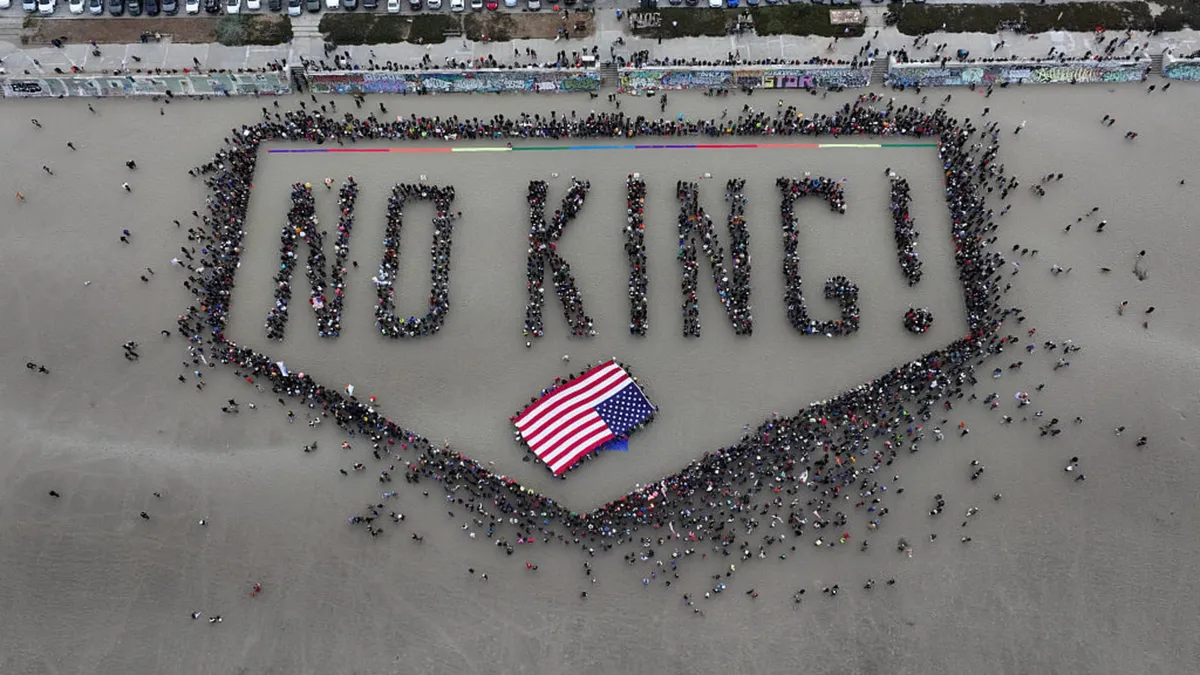
This Saturday, individuals across the United States will gather in the nation's capital and in various communities to participate in the No Kings demonstrations, a response to the direction of the country under President Donald Trump. The event, which the Republican Party has derogatorily labeled as "Hate America rallies," marks the third major mobilization since Trump's return to the White House and is anticipated to be the largest yet.
The protests are occurring amidst a prolonged government shutdown, which has resulted in the closure of federal programs and services. This situation has raised concerns about the balance of power, as an assertive executive branch confronts Congress and the courts in ways that many organizers fear indicate a drift towards authoritarianism in the United States. While the protests unfold, Trump will be at his Mar-a-Lago resort in Florida, attending a high-profile fundraiser.
In a recent Fox News interview, Trump addressed the protests, stating, “They say they’re referring to me as a king. I’m not a king.” This statement came just before he departed for a $1 million-per-plate fundraiser for his MAGA Inc. super PAC, where protests are expected to take place nearby.
Previous protests this year—one against Elon Musk's cuts and another countering Trump’s military parade—drew significant crowds, but organizers believe this upcoming event will foster a more cohesive opposition party movement. Prominent Democratic figures, including Senate Leader Chuck Schumer and Independent Senator Bernie Sanders, are joining the protests as a counteraction to Trump's policies, which they argue infringe on free speech and promote military-style immigration raids.
Ezra Levin, a co-founder of Indivisible and one of the key organizers, emphasized, “There is no greater threat to an authoritarian regime than patriotic people-power.” Despite Republican leaders and the White House dismissing the protests as radical, Levin noted that participation numbers are on the rise, with over 2,600 rallies planned in cities across the nation.
In response to the demonstrations, Republicans have attempted to frame the participants as being outside the mainstream of American politics, attributing the ongoing government shutdown—now in its 18th day—to these protests. GOP leaders have disparaged the rallygoers, labeling them as "communists" and "Marxists," with House Speaker Mike Johnson predicting a display of extremism.
Amidst the government closure, many Democrats see the situation as an opportunity to stand firm against Trump and reaffirm the presidency's role as a co-equal branch of government. Senator Sanders referred to the upcoming demonstrations as a "love America rally," asserting that they represent millions of citizens committed to upholding the Constitution and American freedoms against any authoritarian tendencies.
The current climate represents a significant shift from just six months ago, when Democrats appeared divided and uncertain in their response to Trump's presidency. Schumer faced criticism for allowing a previous government funding bill to pass without challenging Trump’s policies. In contrast, the number of registered locations for Saturday's march has grown substantially from 1,300 in April to over 2,600, underscoring a newfound determination among Democratic leaders.
While House Democratic Leader Hakeem Jeffries was undecided about joining the rally, he contested the Republicans' portrayal of the event. He stated, "What’s hateful is what happened on January 6," referencing the Capitol attack incited by Trump's supporters. Jeffries emphasized that the upcoming protests will showcase what true patriotism looks like—citizens united in their opposition to extremism and advocating for democracy.